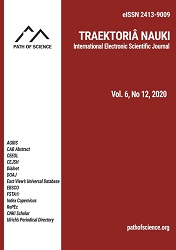Geopolitical Configurations after the Former Yugoslavia and Kosovo Independence
Geopolitical Configurations after the Former Yugoslavia and Kosovo Independence
Author(s): Genc MekajSubject(s): Political history, Government/Political systems, Transformation Period (1990 - 2010), Geopolitics, Peace and Conflict Studies, Wars in Jugoslavia
Published by: Altezoro, s. r. o. & Dialog
Keywords: former Yugoslavia; Kosovo independence; geopolitics; Balkans; wars;
Summary/Abstract: The disintegration of the former Yugoslavia marked the end of the armed conflicts, bringing the region's geopolitical configurations in which it lay. This article gives details the geopolitical designs following the breakup of the former Yugoslavia. It also provides details about foreign geopolitical influences and their interests in the region. In the vortex of the former Yugoslavia's disintegration, the most sensitive case in all framework is Kosovo's case. The problematic past between Albanians and Serbs poses a significant challenge. The Albanian factor in the Balkans is also a problem that brings general challenges in the region without solving it in the right way. In this article, we have tried to elaborate Kosovo Independence's case to bring stability and consolidation of security for the country and the region. We have tried to present that the former Yugoslavia countries should learn from the past and cooperate for a general future. Through cooperation and overcoming classical thinking to orient towards the end, it should bring peace and stability, especially for each country and the Balkan region.
Journal: Traektoriâ Nauki
- Issue Year: 6/2020
- Issue No: 12
- Page Range: 4001-4008
- Page Count: 8
- Language: English

